The 25 Movies That Shaped the 2010s
When you think about the best movies to be released in the 2010s, there’s a few trends that emerge. Small-budget indies finally creep back to popularity (no longer are they just for the arthouses, and blessedly so). Big-budget blockbuster franchises are fewer and further between, and the ones that are left are, for the most part, taking wild creative risks to keep things fresh, diverse, and inclusive. All things said, it was a strong ten years for movies. Here are some of the best movies released in the 2010s.
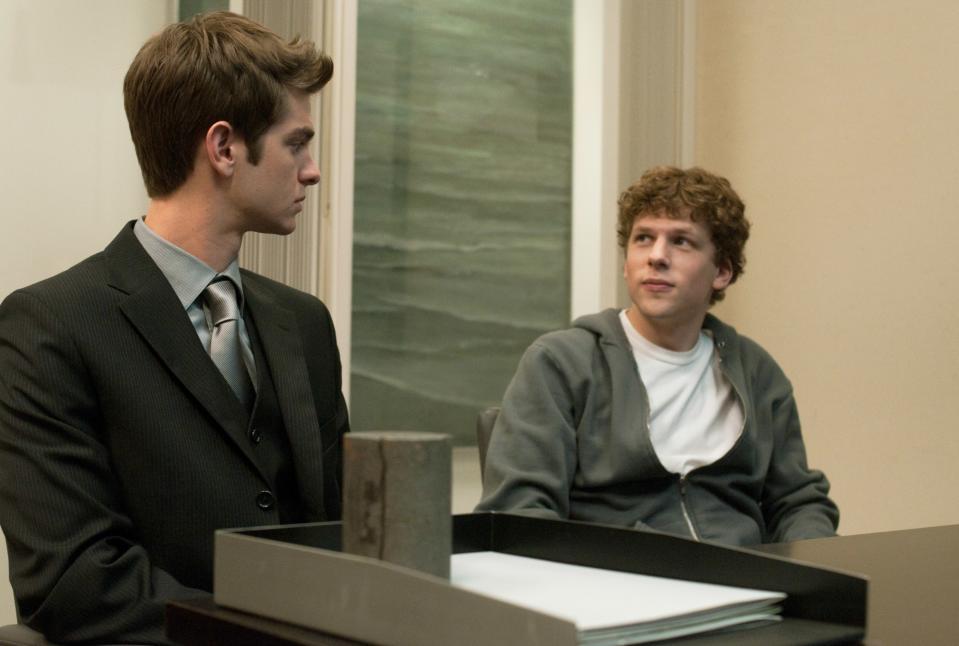
The Social Network
In 2010, the production of The Social Network inspired a fair amount of snark: "Really? They’re making a movie about Facebook?" A decade later, David Fincher’s movie looks like the only one prescient enough to anticipate how social media would grow to dominate, and eventually define, our individual senses of reality. An unusually good script by Aaron Sorkin takes a story about the internet and roots it in the awkward, painful realities of actual relationships, as Facebook founder Mark Zuckerberg builds a multibillion-dollar empire out of human connection while icily severing ties with anyone who actually knows him. The Social Network may play fast and loose with the facts, but it’s in service of darker, sharper truths about the increasingly troubling interplay between technology, capitalism, and connection—and the bottomless egos of those who are hungry to exploit it.—Scott Meslow
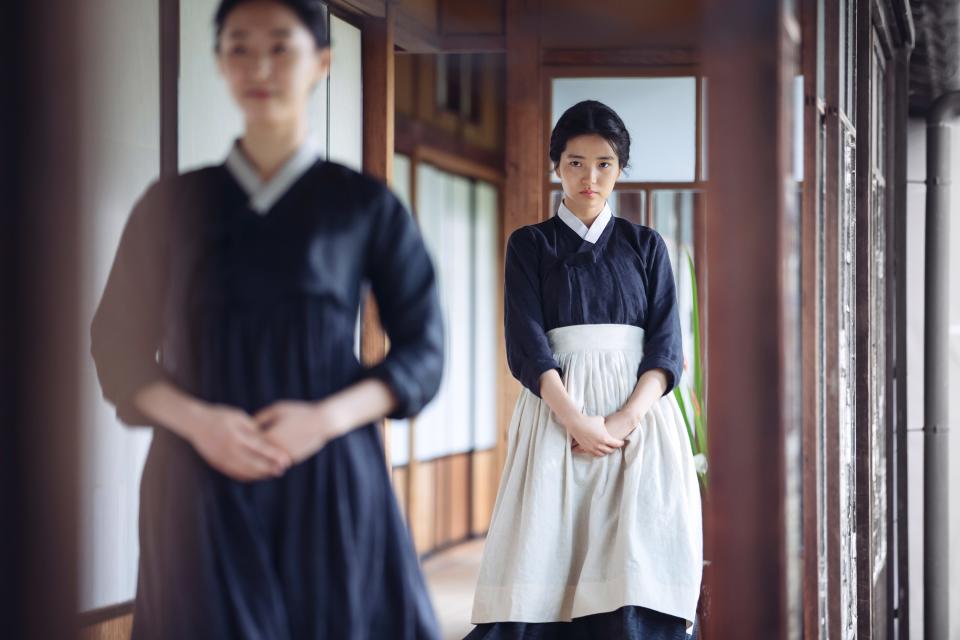
The Handmaiden
Director Park Chan-wook of Vengeance Trilogy fame once described The Handmaiden, his 2016 masterpiece, as "a very simple film." It takes place in early 20th century Korea and, at least initially, presents as a straightforward scam-tale: a conman who disguises himself as a count infiltrates a noble household with plans to seduce its reclusive Japanese heiress, enlisting the help of a lowly maid to gather intel and, if all goes according to plan, win the lady’s heart (and fortune). But since this is a Park Chan-wook film, the story patiently distends into a gorgeous Freudian nightmare, with unsubtle meditations on class, nationalism, gender, pornography, power, love. Plus: "In this film, all the men are villains and all the men are pathetic," Park said in a 2016 interview. "The only cool characters are women. And the only positive male characters in the film are one or two babies."
All told, The Handmaiden is a generational director at his most confident and nimble, toggling between art and beauty and making audiences recoil with easy agility. It’s the kind of film that lodges and lingers and constantly surprises. It’s anything but actually simple. —Chris Gayomali
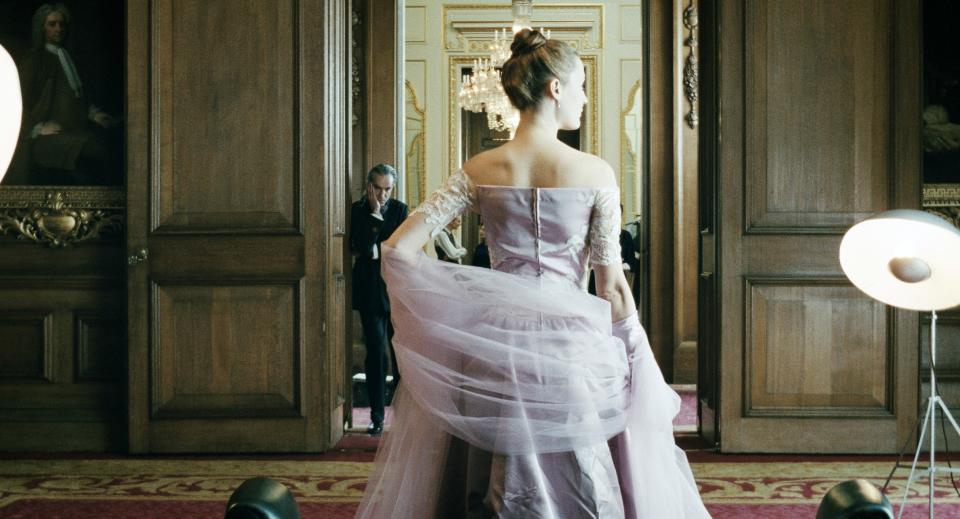
Phantom Thread
To some extent, every Paul Thomas Anderson movie is a love story. But none is as sweet and sweepingly romantic as Phantom Thread. The way Reynolds Woodcock’s staff moves up his spiraling staircase, the airy wisps and flutters of Johnny Greenwood’s strings, the flow and cut of the garments—it doesn't get more sumptuous. And yet, there’s that devilish thread running through it all: the poison of obsession, the tonic of actual poison. Phantom Thread makes me laugh, it makes me squirm, and most of all, it makes my heart throb.—Max Cea
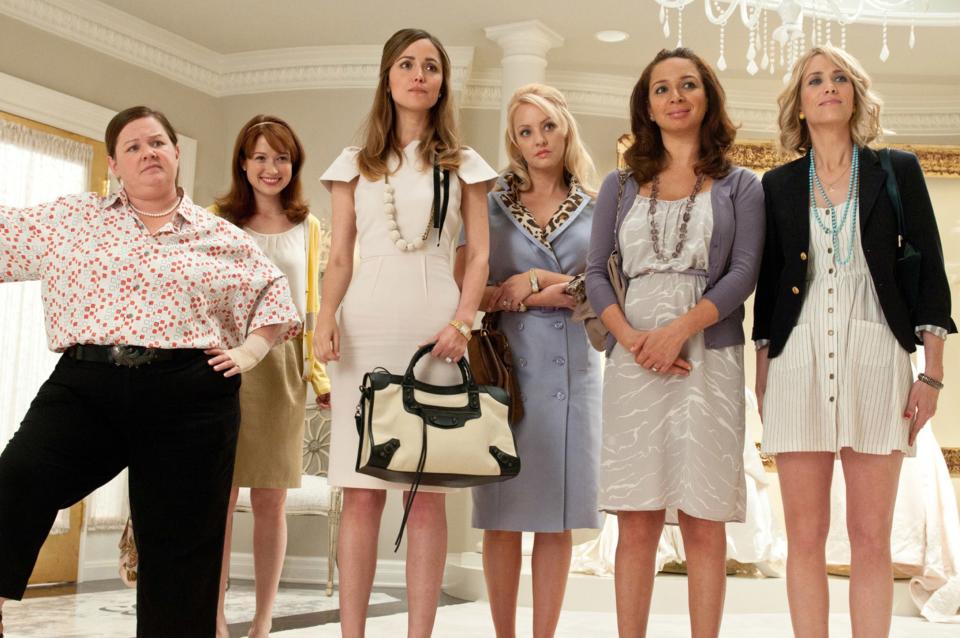
Bridesmaids
There’s a fine line to walk between funny and mean. Wobble to one side and you lose your audience; but confidently pull of a feat like Bridesmaids, Kristen Wiig’s 2011 comedy about female friendships and the feeling like time is passing exclusively you by, and you win enough goodwill to last for a decade. There’s not a thing about the movie’s motor that doesn’t work, from Wiig and Annie Mumolo’s dementedly funny script, to Paul Feig’s impeccably timed direction (I will forever laugh at the scene in the bridal boutique, a masterfully cut piece of filmmaking that presents food poisoning like it’s high art), to some of comedy’s most compassionate onscreen performances by the likes of Maya Rudolph, Chris O’Dowd, and Wiig herself. It’s a special skill to leave your audiences wanting more—an extended Bridesmaids universe? I wouldn’t say no!—but this does exactly that.—Brennan Carley
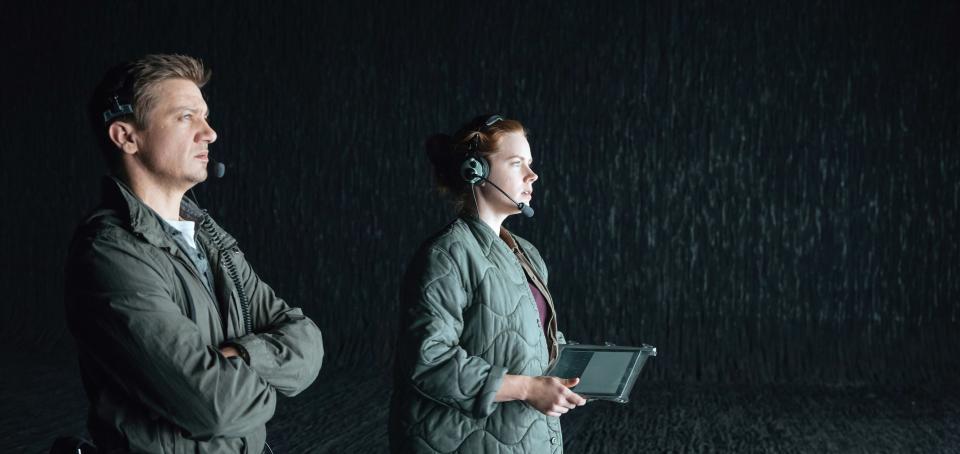
Arrival
Arrival is such a beautiful and lasting film that it’s easy to forget it was originally released the Friday after the 2016 election. The film’s message feels so alien to what we’ve revealed ourselves to be in the years since, to the point where the actual aliens in Denis Villeneuve’s heart-wrenching adaptation of a 1998 Ted Chiang sci-fi story almost feel inessential. Maybe that’s the point. The twelve alien craft are really here to help humanity unite. It’s a movie about understanding, about finding love and beauty even in the face of inevitable loss, and of hope for a fairer future. Arrival now stands even more upright as a moving, quiet invitation to find optimism in fatalism.—James Grebey
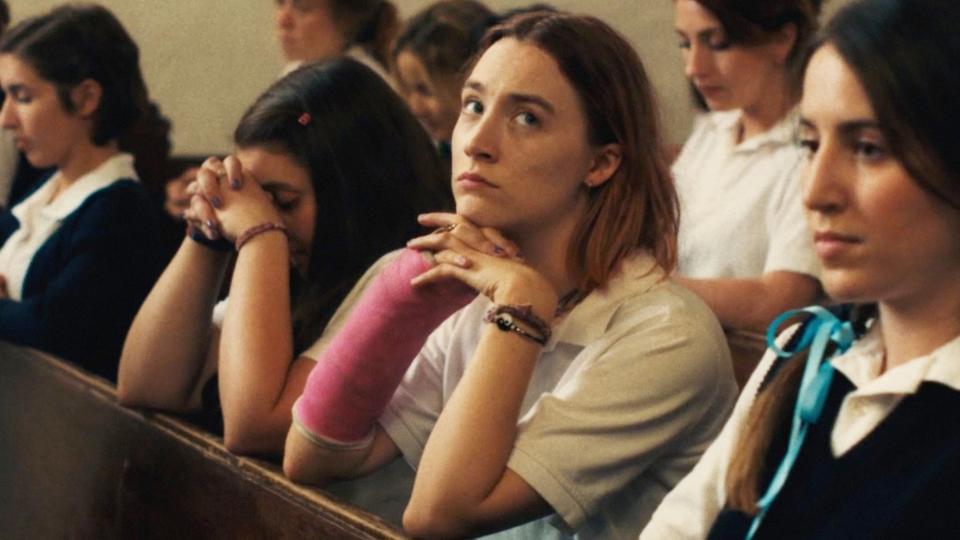
Lady Bird
Early on in Lady Bird, Christine “Lady Bird” McPherson laments her dull, uneventful Sacramento life. “I wish I could live through something,” she says to her unamused mother before an argument erupts, and she throws herself out of a moving car. Watching Greta Gerwig’s witty solo directorial debut (which she also wrote) feels like living through something, that being Lady Bird’s eclectic, messy and beautiful senior year. She is a temperamental whirlwind, all stubborn and prone to a tantrum or five, embodied by a high-spirited Saoirse Ronan in a slapdash dye job. Simply put, she’s a teenage girl. Gerwig embraces and reinvents the coming-of-age drama with vibrancy: the story is largely plotless, boyfriends come and go, and awkward encounters make this cringe-filled vision of 2002 feel so painfully real. (Never forget Timothée Chalamet’s “That’s hella tight”.) People like to throw around the words “instant classic,” but Lady Bird will undoubtedly be remembered for decades to come. —Iana Murray
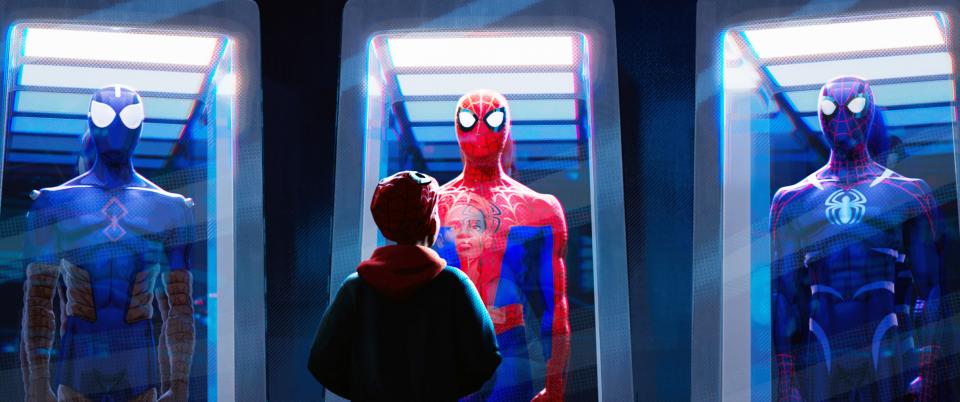
Spider-Man: Into the Spider-Verse
There’s a reason brown kids like me loved Spider-Man—it’s the costume. Top-to-toe red-and-blue, so you never know what the person underneath is supposed to look like. Add that to the character’s core themes of responsibility, something working-class brown folk love lecturing their children about, and Spider-Man might as well be Puerto Rican in my book.
Spider-Man: Into the Spider-Verse gets a lot of cred for popularizing the Spider-Man that’s actually (half) Puerto Rican—Miles Morales feels like a kid from Brooklyn as it is, not the Brooklyn money built and writers flock to. It’s more visually inventive than countless animated films by big studios, locked into a template largely set by Pixar. It’s got a killer soundtrack and score in an era where most blockbusters let those things fall by the wayside. And it’s got more jokes and a bigger heart than any superhero film, full-stop. Spider-Man: Into the Spider-Verse earns its spot in the canon not just because it centers brown kids like me, but because it raised the bar for everyone—no disrespect to Tom, Andrew, Toby, or any of the Chrises, but Miles Morales is the superhero to beat.—Josh Rivera
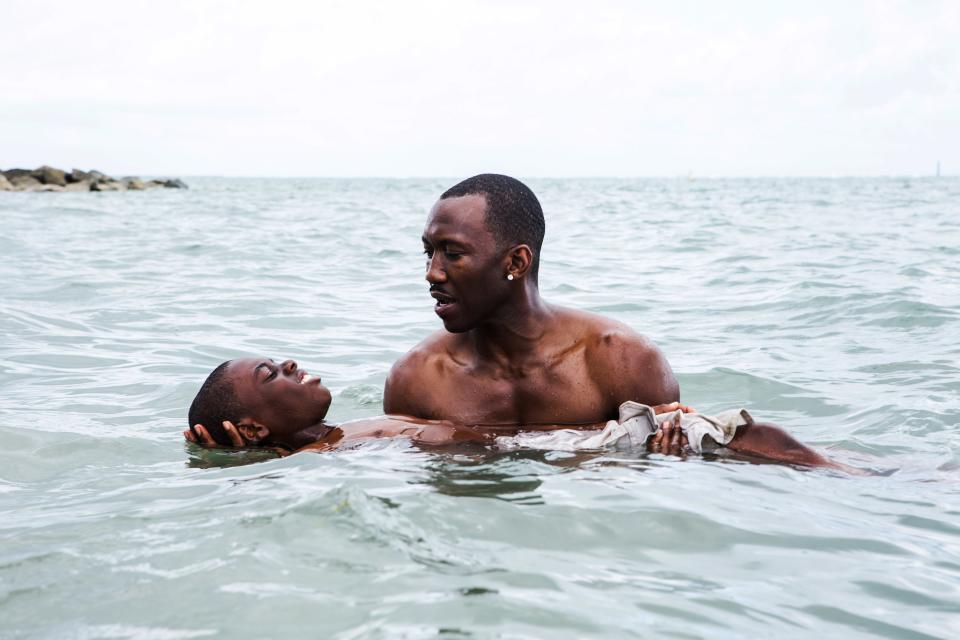
Moonlight
In 2013, when Barry Jenkins set out to solicit funding for his screenplay about a gay black boy growing up in a Miami housing project with an abusive, HIV-positive mother, he made a PowerPoint presentation. In it, he made the case that, while the film’s narrative would certainly be melancholic, the imagery would be dynamic and sharply capture the city’s tropic beauty. He inserted reference images from formative films like Wong Kar-Wai’s Happy Together and Sally Potter’s Ginger and Rosa. On the final slide, Jenkins wrote: “The lack of coming of age films featuring people like Chiron and set in places like inner-city Miami is pronounced and unfortunate.”
Jenkins failed to land any funding that go around, but three years and one fateful meeting with Brad Pitt later, he delivered Moonlight anyway. Based on Tarell Alvin McCraney’s semi-autobiographical stage-play (In Moonlight Black Boys Look Blue), the film captures the way many black boys who grow into black men are slowly and progressively made estranged from themselves by conventions and societal forces beyond their control. It’s a tender reflection on male intimacy and a nuanced exploration of gay male identity. Most viewers had never seen anything like it on the big screen. That was certainly the case for the Academy of Motion Picture Arts and Sciences which, in historic and controversial fashion, awarded Moonlight just the second ever Best Picture trophy for a film made by a black director.
Moonlight hasn’t exactly been the game-changer some hoped it would be, but it set the stage for films that have come in the years since and proved the critical and commercial viability of stories about people and communities that have long been ignored.—Jordan Coley

Call Me By Your Name
For my money, Andre Aciman’s original text is one of the best love stories ever told, not just in the past ten years. Call Me By Your Name’s film adaptation somehow pulls off the balancing act of feeling hugely universal and achingly personal, following Elio and Oliver's intense connection one summer in Italy. It's a deep, exquisitely directed movie about heartbreak and adulthood and the lesson that it's impossible to have one without the other. Like its final shot, this film will stay with you, embers burning all the while.—Tom Philip

Parasite
If you had to distill "What It Feels Like to Be Alive in 2019" into two hours and change, it would probably look something like Bong Joon-ho’s Parasite, which uses insurmountable income inequality as the engine for a nail-biting thriller. Parasite follows a family of hard-luck grifters who ingratiate themselves into the lives of an absurdly wealthy family. The movie’s strengths are too numerous to recount here, but I was particularly struck by its refusal to demonize either family at the center of its narrative; rather pointedly, it’s never made clear who the "parasite" of the title is supposed to be, or what any of us should (or could) do about it. Right now, most prognosticators project that Parasite will land an Academy Award nomination for Best Picture. On merit alone, Bong should walk away with an armful of Oscars, including Best Picture—but then again, Parasite has no illusions about how far merit will get you, does it?—S.M.
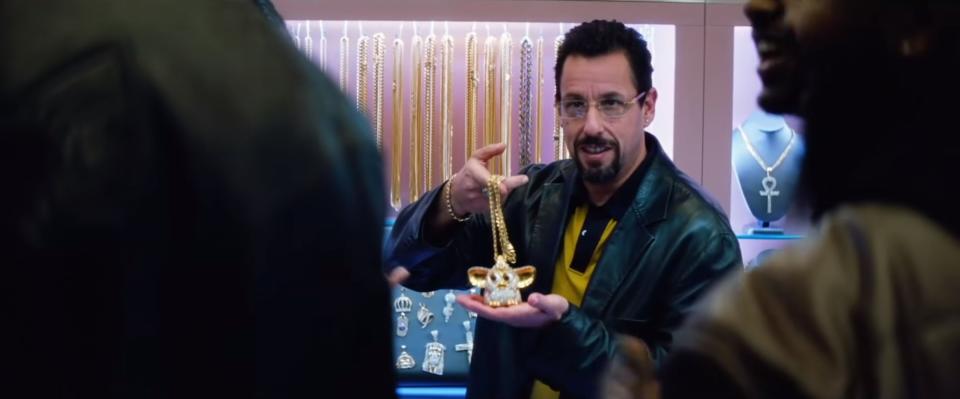
Uncut Gems
“Adam Sandler in a relentless two-hour panic attack of a movie” doesn’t sound like a great elevator pitch, but the increasingly leveling-up Safdie Brothers made movie magic out of it anyway, trading on the comedian’s career-long knack for rubbing people the wrong way and turning it into his character’s most valuable asset. They work in tandem to deliver an unserious but brutally arresting portrait of a man who can never say no, and who will never stop chasing a bigger win.—T.P.
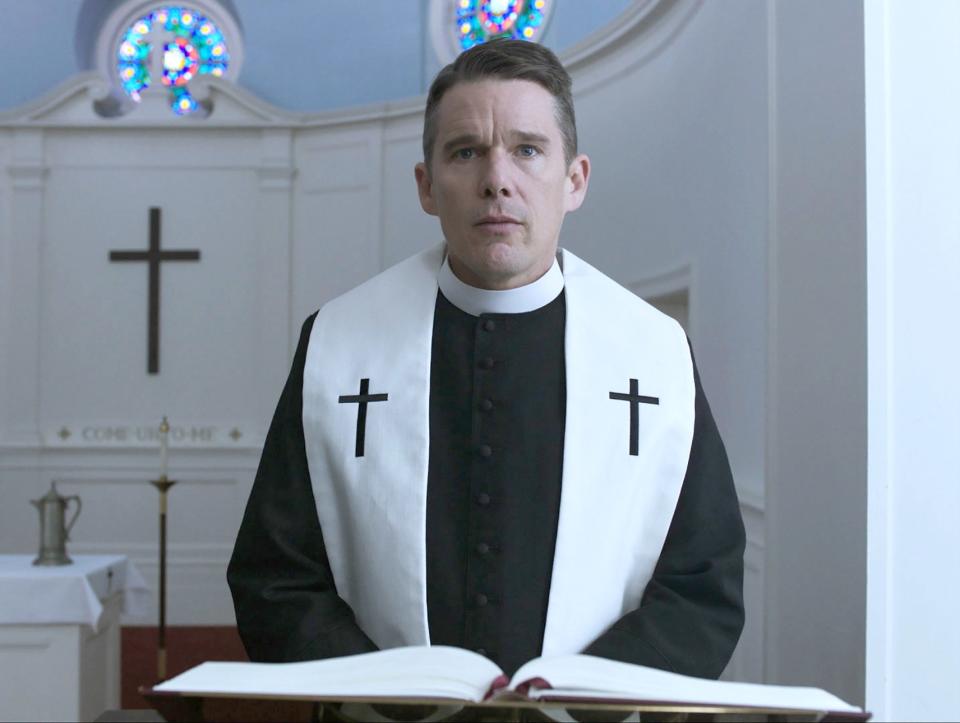
First Reformed
In First Reformed—Paul Schrader’s muted dirge for faith, America, and the planet—the Reverend Ernst Toller lies to himself daily in an attempt to will himself back to the faith he long ago lost. Alcoholism and grief eat at his mind and body, and his church exists mostly as a tourist attraction. Toller’s crisis of faith intersects with Mary’s, a young woman seeking his counsel as her husband, Michael, has become a radical climate activist, asking her to abort their child to save it from a life enduring climate crisis and planning an act of terrorism.
We don’t have the luxury of lying to ourselves about the future anymore. The last ten years have brought a clarity that it’s tempting to wish we didn’t have—we have broken the world in innumerable ways, and we are painfully aware that the time we have to do anything about it is dwindling.
First Reformed is a quiet, damning work of protest. It’s an anguished film in pain for the future of the world and our children, wounded by those who have chosen to wield faith as a tool for political power, and grieving for the fact that any faith seems to be an inadequate salve for just how clearly we can see that we have been wrong about everything and choose not to do anything about it anyway. “Will God forgive us,” Toller writes in his journal, “for what we have done to this world?”—J.R.
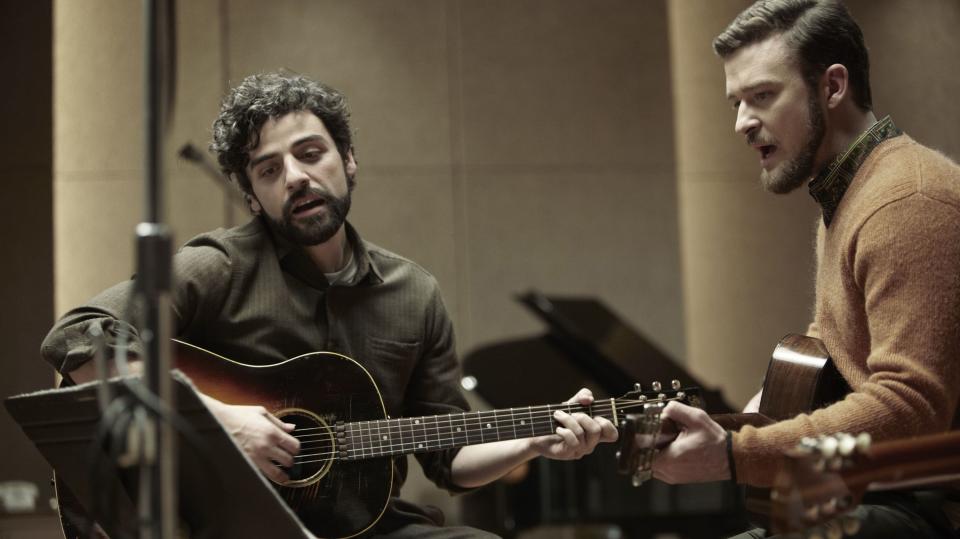
Inside Llewyn Davis
Inside Llweyn Davis is by far the best movie in which Oscar Issac and Adam Driver talk about space (sorry, Star Wars). Okay, well technically they sing about space, but beyond the glory of “Please Mr. Kennedy,” the Cohen Brothers’ moving ode to the cold side of the much-romanticized ‘60s folk music scene captures an all-too-familiar feeling of missing your moment. Issac—who is an incredible singer in addition to his top-notch acting chops (his voice alone carries the entire movie by virtue of the scene when he performs "The Death of Queen Jane")—captures the small, sadly common tragedy of always being one lucky break away from stability and success, knowing that break may simply never come.—J.G.
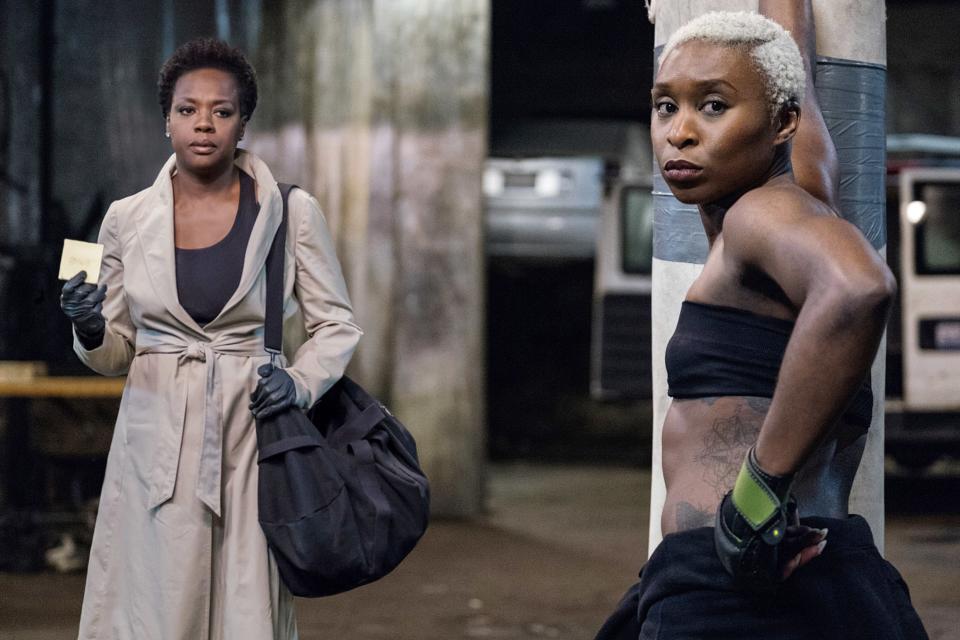
MCDWIDO FE013
Widows
Shortly after Ocean’s 8 came the movie that Ocean’s 8 should’ve been: a hard-as-nails original heist about a few weary women angrily clawing, fighting, and thinking as they try to clean up the mess their men left for them. Steve McQueen works in some sexy shots—hello to that drive through Chicago!—but Widows remains cold and brutal: a picture of broken government, shattered relationships, and people on the brink. It’s the furthest thing from Danny Ocean and the boys robbing the Bellagio, but you could make the case it’s even better.—M.C.
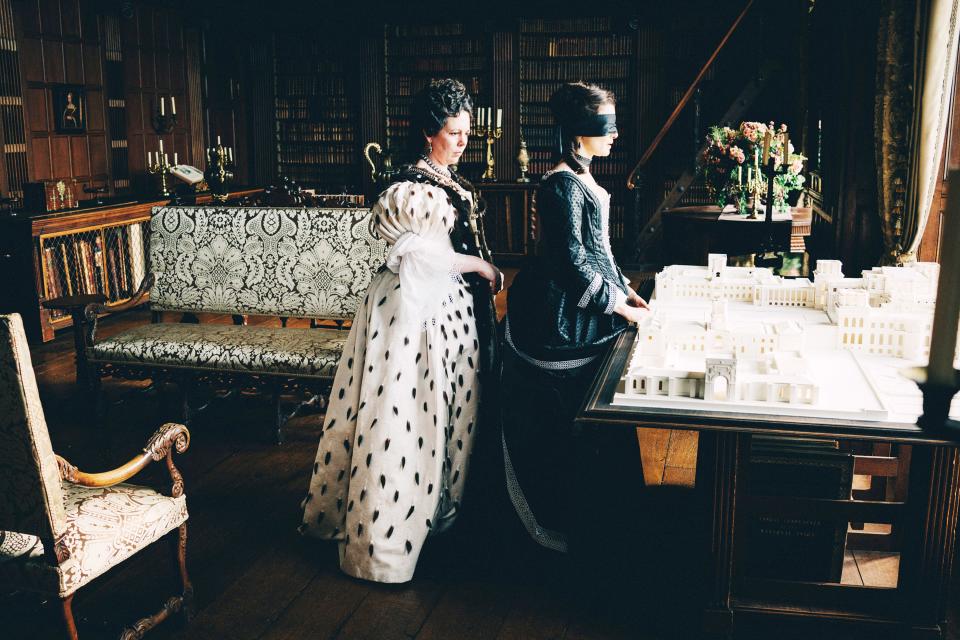
The Favourite
If ever there was a film more than the sum of its parts, it’s the batshit The Favourite, which lets three actors at the top of their game loose on a trio of brilliant, intelligent, lovely, horrible characters, and casts a spell for its entire two hours. Olivia Colman deservedly snagged an Oscar, but The Favourite should have swept the ceremony, frankly. It's Yorgos Lanthimos's best film since Dogtooth. A bawdy comedy that dares you to laugh, then interrogates you for doing so.—T.P.
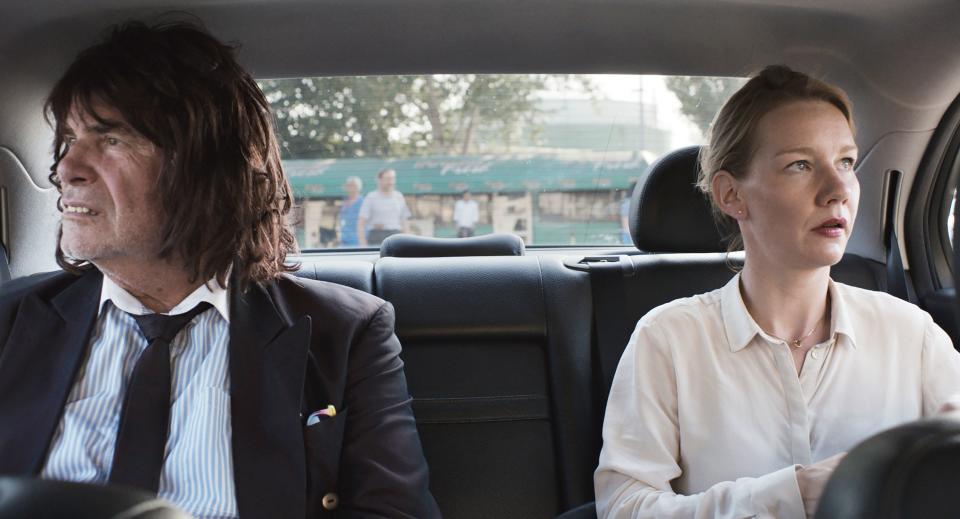
Toni Erdmann
One of the great American injustices of the 2010s is that Toni Erdmann is in German. Every moment spent glancing down at subtitles is a moment spent only partially absorbing Winfried (Peter Simonischek), an aging father trying, with costumes and pranks, to win back his daughter’s affection. And yet, language barriers be damned: Writer-director Maren Ade crafted a career-best comedy in a decade that badly needed them.—M.C.
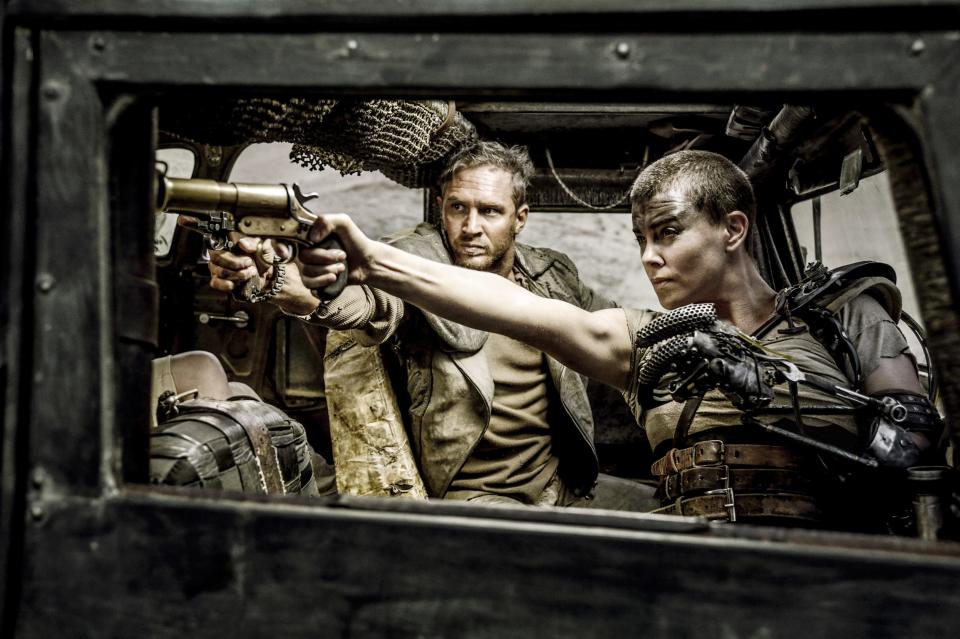
Mad Max: Fury Road
If we’re going to live in a franchise hell, the corpses of every possible IP juiced up for a fresh chance at a box office shakedown, may they at least be as juiced up as Mad Max: Fury Road. George Miller brought back his post-apocalyptic series 30 years after the last installment and delivered a movie that was essentially one big car chase. Fury Road is a shiny chrome example of how much intent and execution matter. You can feel the passion in the movie, and you can almost feel the wind and explosions blasting at you as Tom Hardy and Charlize Theron leap across tricked-out rigs in jaw-dropping action sequences that were largely brought to life with practical effects. The ambition and earnestness behind Mad Max: Fury Road make it one of the best movies of the decade—not bad for the fourth sequel in a franchise that we thought ran out of gas during the Reagan administration.—J.G.
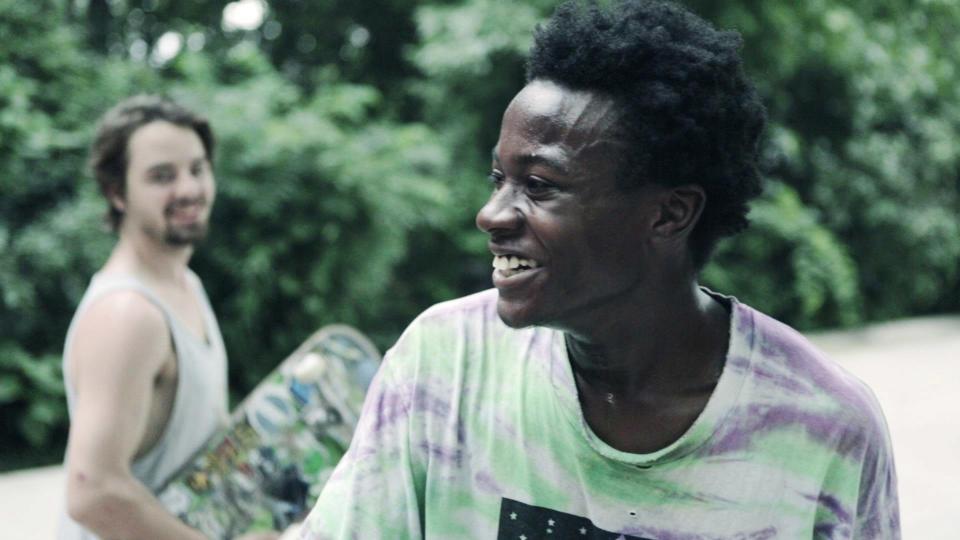
Minding the Gap
In Bing Liu’s 2018 documentary, Minding the Gap, the greatest trick of all is the way the director—in his debut no less—captures the falls. His camera picks up the most intimate, tragic details as he and his small group of Rust Belt skater friends come of age. These kids, viewed over the course of several pivotal years, personify the toll of big issues like domestic abuse and systemic racism. They’re brought together by skating and pushed apart by their respective circumstances. Bleak, yeah, but every frame is infused with love.—M.C.
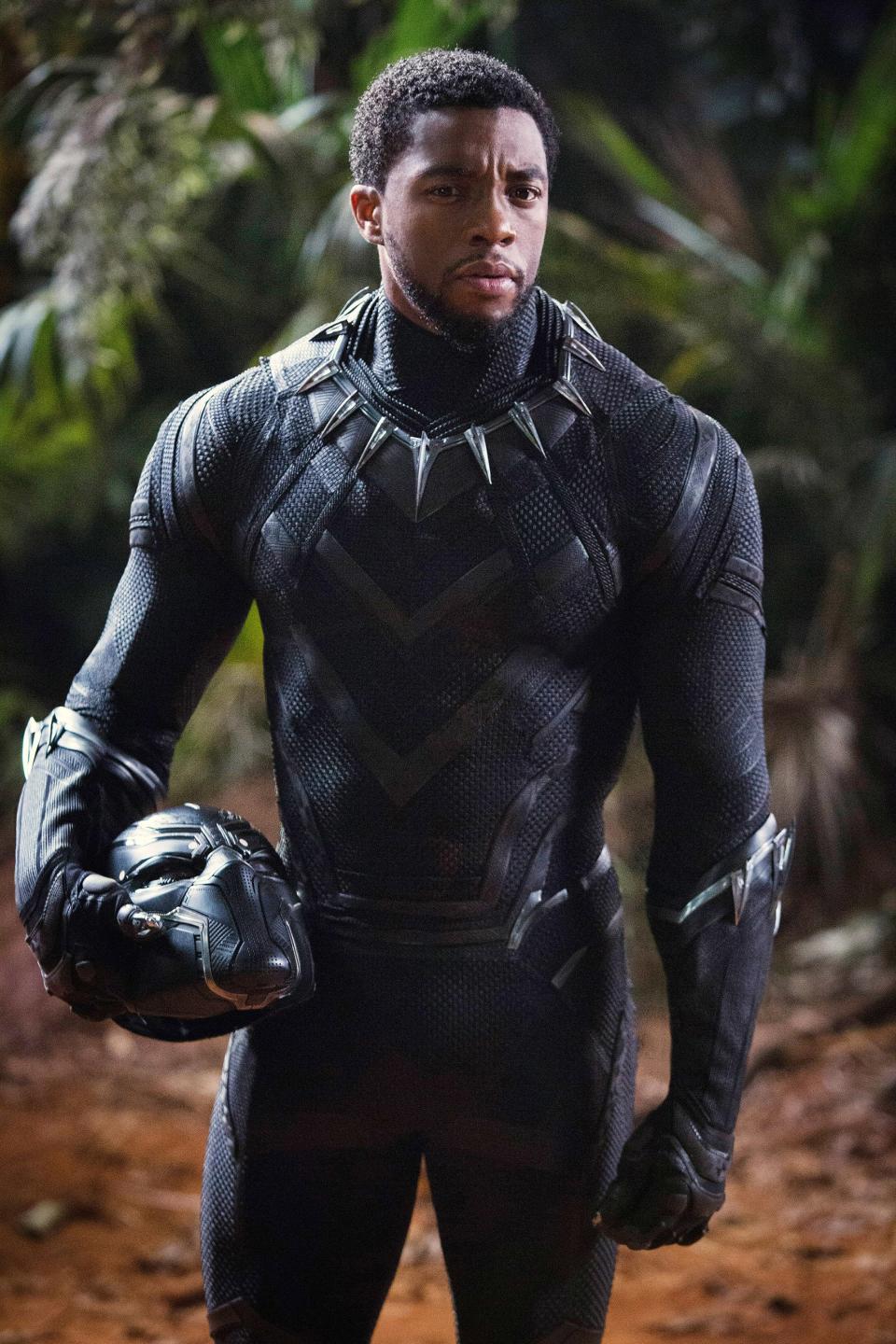
Black Panther
All those long-held Hollywood beliefs—superhero movies are inherently unworthy of award nominations, and black films don’t travel—were completely shattered with Ryan Coogler’s mesmerizing journey to Wakanda in 2018’s Black Panther. But beyond all the box office records, the $1.3 billion worldwide gross, and a Best Picture nomination at the Oscars, Black Panther permeated culture in a way we had not seen since ever before. “Wakanda Forever” ascended from mere catchphrase to a signifier of black excellence writ large within days of the movie’s release. Michael B. Jordan’s Erik Killmonger not only supplied white viewers perhaps still struggling to understand why Black Lives Matter... mattered, with a crash course in decades-long frustrations stemming from systemic racism, but also prompted meaningful conversations between Africans and African-Americans. That the first thing most people think about when you mention Black Panther isn't that it's a Marvel superhero movie is a testament to its reach, its depth, and its long-lasting impact.—Mick Rouse
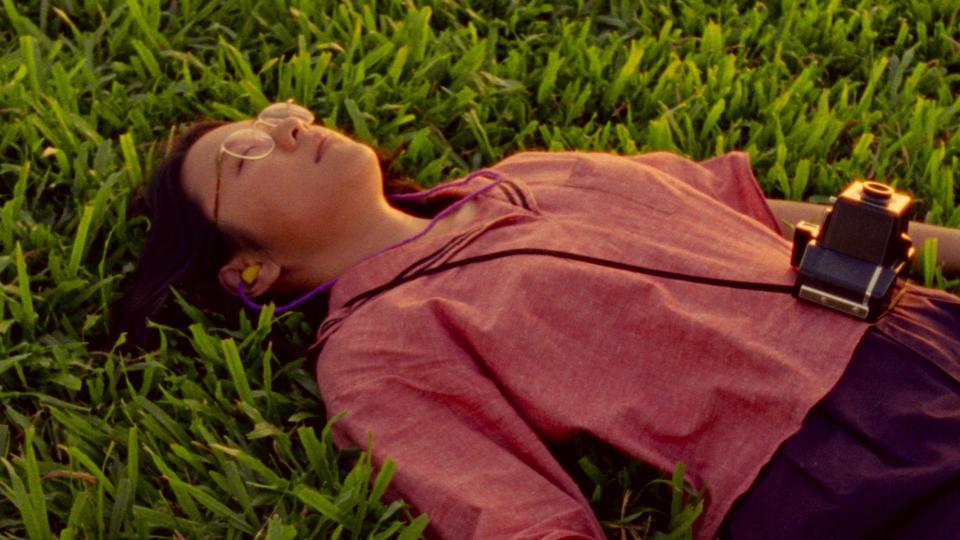
Shirkers
There is a persistent weight that rests on Shirkers, one of lost histories and lost futures. In 1992, Singaporean Sandi Tan made a road movie (the documentary’s namesake), with her friends, about a teen killer—but her male, much older mentor ran away with the film reels and was never seen again. Decades later, the footage miraculously resurfaced, only the sound was gone. The film will forever be half-completed, but from what Tan shows in her wonderfully bizarre documentary, it doesn’t matter. Shirkers isn’t silent; it screams and yells. It brims with the effervescence and punk sensibility emblematic of Tan’s youth spent sticking her middle finger up to the establishment. You can’t help but ask a series of What Ifs. If Shirkers had survived, would we have known the name Sandi Tan before 2018? Would film school professors be teaching about a Singaporean New Wave kickstarted by a group of renegade teenage girls? What would cinema be like now if one of our most gifted filmmakers wasn’t irrevocably wronged? It feels too easy to call Shirkers stranger than fiction. Men abusing their power over innocent girls is a regular occurrence—Tan just has the evidence to prove it.—I.M.
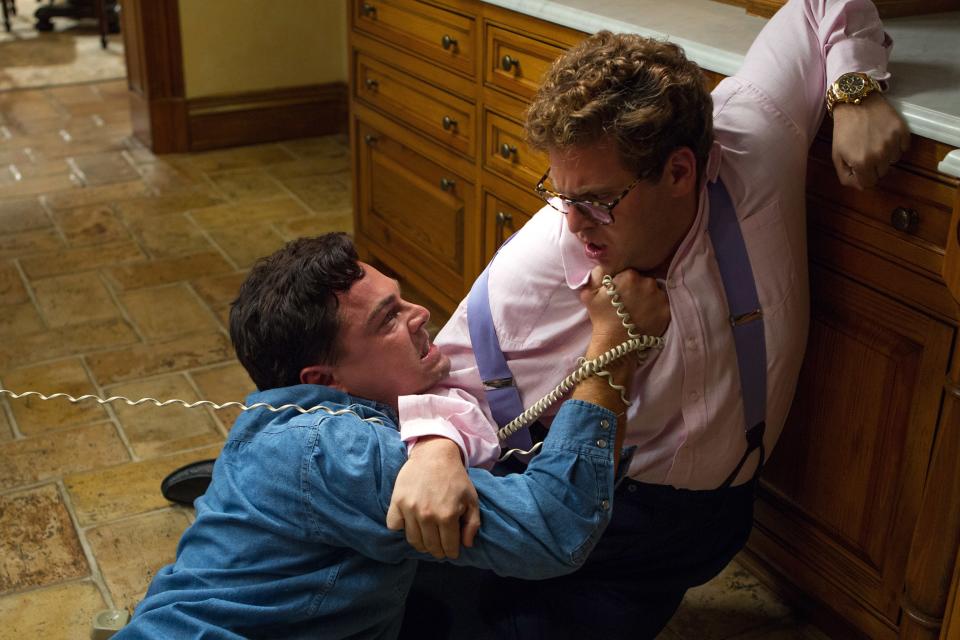
THE WOLF OF WALL STREET, from left: Leonardo DiCaprio, Jonah Hill, 2013. ph: Mary Cybulski/©Paramoun
The Wolf of Wall Street
What do we see when we look at Jordan Belfort? Martin Scorsese's flashy masterpiece The Wolf of Wall Street is a Rorschach test for humanity, showing us an undeniably entertaining scammer and inviting us to go ahead, find him charming, root for him, laugh at him. Before we realize it, the movie's over and one of the greatest villains has not only got off scot free, but he's made us think we like him. The Wolf of Wall Street is fun, but it's also an urgent story about men like Belfort and how often and easily they shimmy their way to the top while no one's really watching.—T.P.
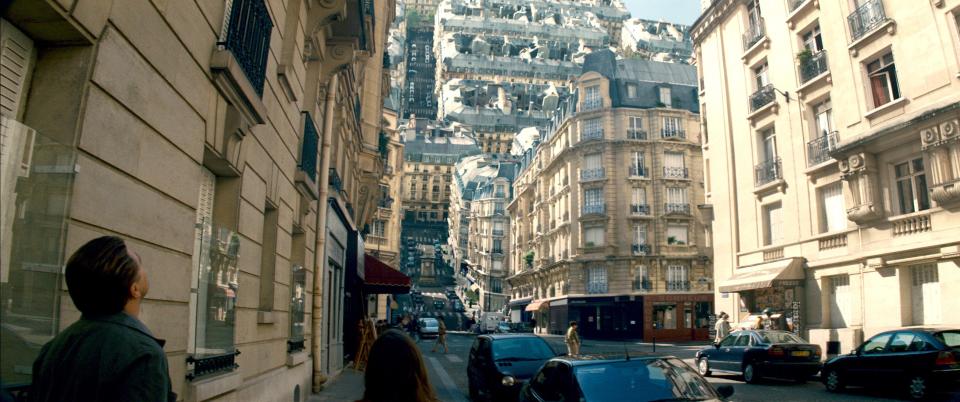
INCEPTION, from left: Leonardo DiCaprio, Ellen Page, 2010. ©Warner Bros./Courtesy Everett Collection
Inception
I can’t recall a movie this decade that captivated people the way Christopher Nolan’s dream heist Inception did. Maybe it doesn’t totally hold together, maybe Ellen Page’s character is unnecessary, and maybe it doesn’t have much in the way of a sense of humor. I don’t really care! So far as theatrical experiences go, it doesn’t get much better than Joseph Gordon-Levitt walking on walls, cities bending in on themselves, and Leonardo DiCaprio spinning tops.—M.C.
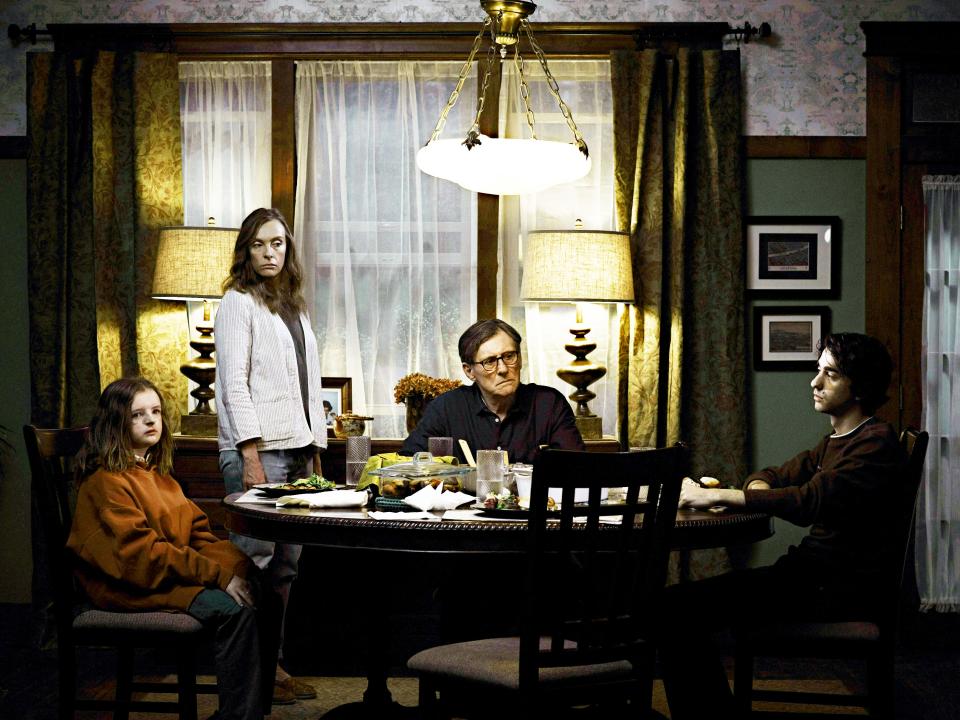
Hereditary
Ari Aster exploded onto the scene in 2018 with a grisly, gasping Hereditary, one of the most accomplished, confident horror films ever made. It's a rare film that can be so chillingly awful and infinitely rewatchable, but this A24 masterpiece uses its core asset—Toni Collette, maniacal, mesmerizing, snubbed—to form a hysterical, demonic melodrama that achieves not just one but several of the scariest images in cinematic history.—T.P.

Coco
That Coco landed in theaters in the middle of Donald Trump’s campaign against Mexico felt like some serious market correction on the universe’s part. It’s not that the movie’s plot centers around modern-day politics, but Pixar’s first full-length picture to feature a minority in the lead role presented American audiences with all the love, splendors, and richness of Mexican culture at a time when anti-Mexican sentiments were du jour for much of the country. In that sense, Coco is inherently political. In her New Yorker piece last summer, Jia Tolentino called Coco “a movie about borders more than anything—the beauty in their porousness, the absolute pain produced when a border locks you away from your family. The conflict in the story comes from not being able to cross over; the resolution is that love pulls you through to the other side. The thesis of the movie is that families belong together.” Our culture needed Coco more than anyone could have ever predicted.—M.R.
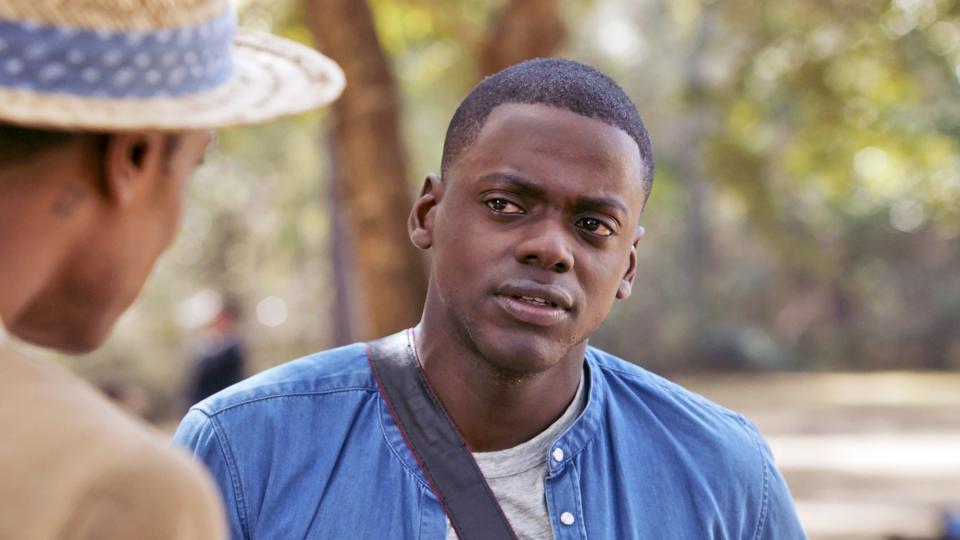
GET OUT, Daniel Kaluuya, 2017. ©Universal Pictures/courtesy Everett Collection
Get Out
The Shape of Water may have walked off with the Best Picture Oscar, but let’s be real: Get Out is the movie that will endure. Jordan Peele’s directorial debut, which he described at the time as a "social thriller," is a staggering achievement: A deeply suspenseful, uncommonly entertaining movie that turns an unflinching eye to the many ways in which white Americans—more often than not, with big smiles on their faces—have abused and appropriated the lives of black Americans while denying their fundamental right to exist. For black audiences, Get Out was a long-overdue exploration of double consciousness on the big screen. For white audiences, Get Out was what Roger Ebert once called an "empathy machine": A chance to occupy a point-of-view that wasn’t white, and to get a glimpse of how harrowing that experience can be. I don’t care what your politics are: When that police car shows up at the end of the movie, everybody gets that sinking feeling in their stomach.—S.M.
From Beyoncé to Taylor Swift, from SOPHIE to Tame Impala, these are the records from the decade that changed music.
As the decade comes to a close, Kyle McGovern presents a ranking of the films that defined a tumultuous time for the Academy.
From Breaking Bad to RuPaul's Drag Race, the small screen saw some of its sharpest-ever programming over the last decade.
Originally Appeared on GQ




